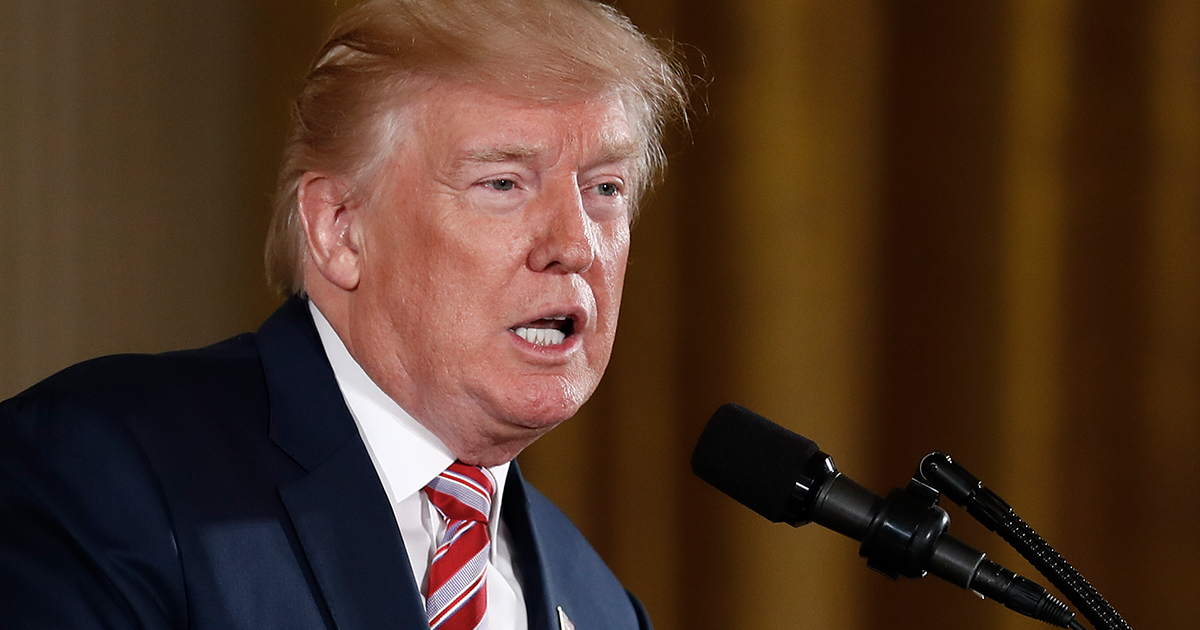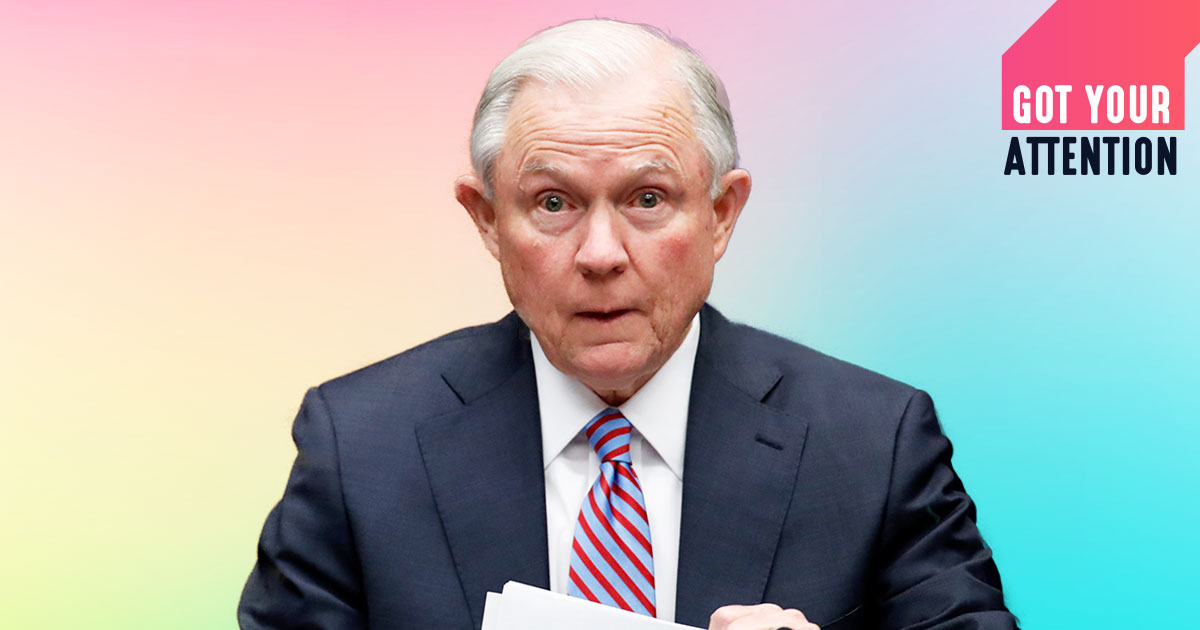The Reason Jeff Sessions Keeps Claiming He Can't Answer Questions

By:
U.S. Attorney General Jeff Sessions kept saying he couldn't answer certain questions in his hearing with the Senate Intelligence Committee about Russian interference—and the reason he cited is causing controversy.
At Tuesday's hearing, Sessions said he would not answer any questions about his conversations with President Donald Trump because the president may want to invoke executive privilege, latter.
"You’re impeding this investigation," Sen. Martin Heinrich (D-NM) responded. "Your silence speaks volumes."
When asked repeatedly if he were invoking executive privilege himself, Sessions said, "No, only the president can do that."
However, Sessions admitted that Trump had not invoked the privilege. Sen. Angus King (I-Maine) demanded to know why Sessions wouldn't answer the questions, considering the president had not invoked the protection, but received the same answers.
"You've testified that only the president can assert it," King said. "What is the legal basis for your refusal to answer these questions?"
"I'm protecting the right of the president to assert it if he chooses," Sessions responded. "The president will either assert the privilege or not, or some other privilege can be asserted, but at this point I believe it's premature for me to deny the president a full and intelligent choice about executive privilege."
What is executive privilege?
 Carolyn Kaster/AP - apimages.com
Carolyn Kaster/AP - apimages.com
Executive privilege has been used by presidents and members of the executive branch to avoid answering questions about communications involving the head of state, according to Business Insider. It is not explicitly in the U.S. Constitution, but presidents have argued that the privilege is related to the separation of powers.
Experts told CNN that the ability to use the privilege is specific and depends on the question, however.
"There's no doubt that conversations that involve national security in a real sense are potentially protected by an executive privilege," Diane Marie Amann, a law professor at the University of Georgia, told CNN. "But some of the areas that have been under discussion, with regard to confidential communications, are not classified—and don't implicate national security. That's much more of a gray area."
 AP/Alex Brandon - apimages.com
AP/Alex Brandon - apimages.com
If Trump does invoke executive privilege, the scope of the questions can be negotiated with the congressional committee, but refusing to answer altogether could result in litigation.
"The committee can negotiate with the administration to get answers to narrower or different questions or to get answers in a closed session," Lisa Kern Griffin, a professor at Duke University's School of Law, told CNN. "If they do not come to any agreement, of course the matter could be litigated. The Supreme Court case that describes the scope of executive privilege arose from a similar dispute concerning the Nixon tapes."
Jennifer Rubin, a colunist for The Washington Post, wrote about the Nixon tapes' influence on executive privilege. In U.S. vs. Nixon, the U.S. Supreme Court held that executive privilege can be reviewed and Nixon could not block a special prosecutor from certain materials because of executive privilege.
"While the Watergate case concerned production of the White House tapes, the same considerations would govern testimony," Rubin wrote. "If we get to that point, Sessions—aside from a Fifth Amendment claim—likely will be required at the very least to tell the special counsel in the current case what was discussed regarding attempts to interfere with or impair the Russia investigation and potential prosecution of former national security adviser Michael T. Flynn."
From the U.S. Supreme Court 1974 decision:
Neither the doctrine of separation of powers nor the need for confidentiality of high-level communications, without more, can sustain an absolute, unqualified Presidential privilege of immunity from judicial process under all circumstances. The President’s need for complete candor and objectivity from advisers calls for great deference from the courts. However, when the privilege depends solely on the broad, undifferentiated claim of public interest in the confidentiality of such conversations, a confrontation with other values arises. Absent a claim of need to protect military, diplomatic, or sensitive national security secrets, we find it difficult to accept the argument that even the very important interest in confidentiality of Presidential communications is significantly diminished by production of such material for in camera inspection with all the protection that a district court will be obliged to provide.
Sessions isn't the first person from the Trump administration to test the boundaries of executive privilege.
In testimony on June 7, NSA Director Mike Rogers and Director of National Intelligence Dan Coats seemingly invoked executive privilege as the reason they could not answer questions publicly. However, they agreed to answer the questions privately, which isn't customary.
“An executive privilege claim would normally be made to prevent testimony, period,” George Mason University professor Mark Rozell told Politico. “Going before Congress in a closed session may be a compromise to avoid the need for executive privilege if the president’s only major concern is about information getting out to the media and ultimately the public.”
